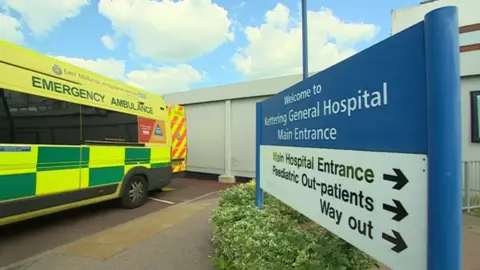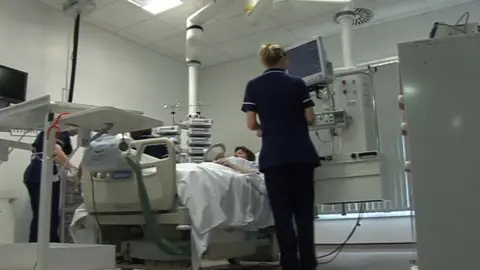Kettering General Hospital out of 'special measures' after CQC inspection
 BBC
BBCA hospital criticised for its safety standards has been taken out of special measures after two years by inspectors, but remains as "requires improvement".
The Care Quality Commission (CQC) said all areas of Kettering General Hospital have been rated "good" or "requires improvement".
It was put in special measures in April 2017 after a critical CQC report.
Chief executive, Simon Weldon, said: "I am delighted. This is the the culmination of a long journey."
The previous report, in February 2018, found there were issues with urgent and emergency services and diagnostic imaging, while the radiography service was "not providing a safe service for patients".
Being in special measures meant the hospital was told by the CQC to accept support from external bodies.

Leanne Hackshall, director nursing and quality, said the expansion of its emergency department and an increase in staff had helped improve urgent care.
The rating for diagnostic imaging, including radiography, had gone from "inadequate" to "good".
'Challenging time'
The inspectors, who visited on 5-7 February and 12-14 March this year, said more needs to be done to ensure patients are treated in a timely and effective way, including making sure pain relief was administered sooner.
Ms Hackshall said the hospital had already been working on those issues since the CQC's last visits.
She said being in special measures had had a "knock-on effect for recruitment and retention of staff, and the general wellbeing of the organisation".
Mr Weldon said the latest improved rating "fairly reflects the progress we've made" but warned more challenges lay ahead.
"With the population in the north of Northamptonshire growing, we need to build a hospital that is fit for purpose," he said.
He also said a culture change was needed so "more people [were] to be cared for at home or close to home rather than coming to hospital".
